You can access the plenary poster and free registration link here.
Kevin Huang:
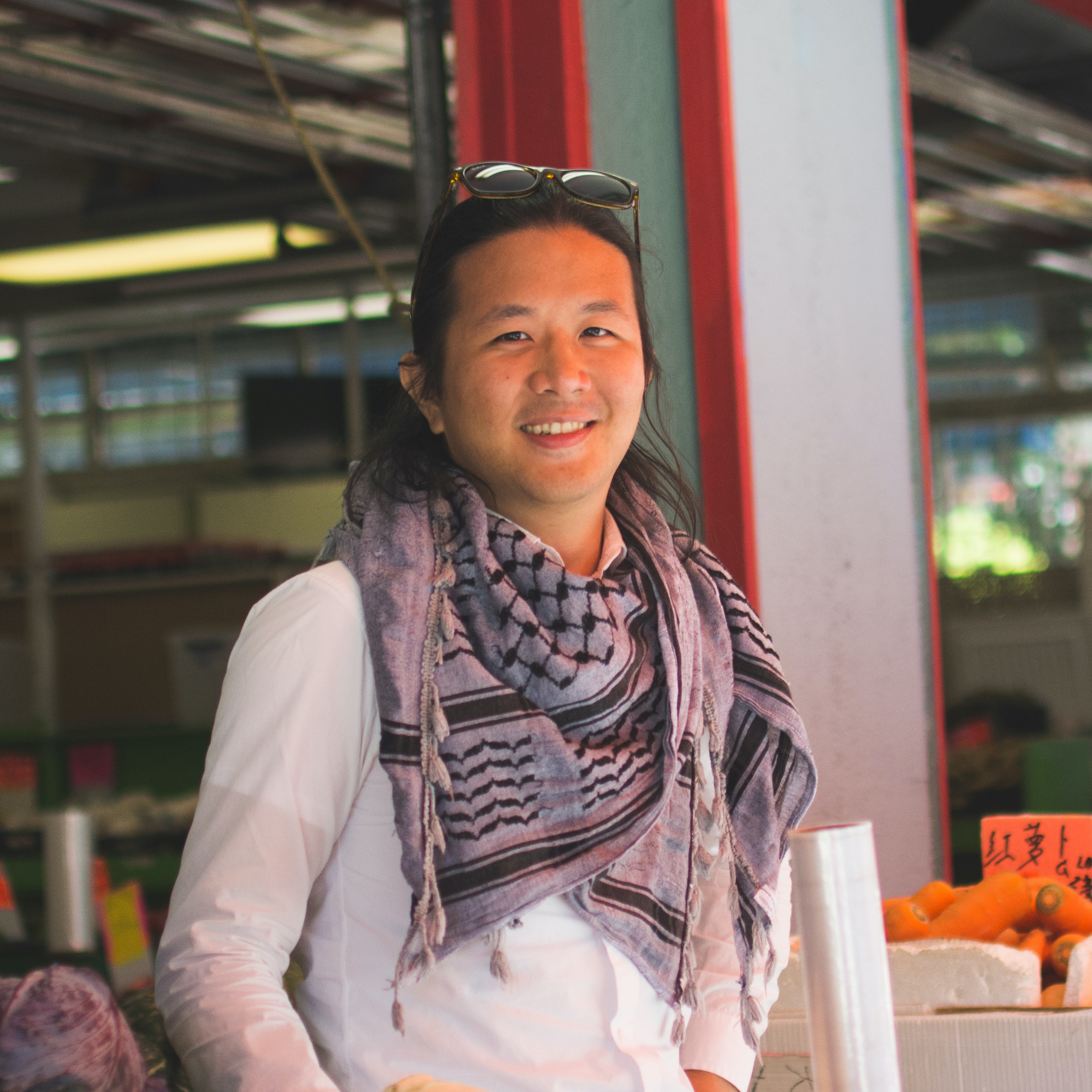 Kevin Huang 黃儀軒 (he/him) is the co-founder and executive director of hua foundation, an organization – based in Vancouver – with the mission of strengthening the capacity among East Asian diasporic youth, in solidarity with other communities, to challenge, change, and create systems for a more equitable and just future. His work has ranged from scaling culturally sensitive consumer-based conservation strategies through a project called Shark Truth, advancing municipal food policy to address inclusion and racial equity, to providing supports for youth from ethnocultural communities to reclaim their cultural identity on their own terms. Kevin organizes in Vancouver’s Chinatown and serves on committees with Vancity Credit Union, Vancouver Foundation, and the City of Vancouver. Over the past year, Kevin has been spending his time directing community based COVID-19 response projects that address language and cultural gaps including culturally appropriate emergency food relief projects.
Kevin Huang 黃儀軒 (he/him) is the co-founder and executive director of hua foundation, an organization – based in Vancouver – with the mission of strengthening the capacity among East Asian diasporic youth, in solidarity with other communities, to challenge, change, and create systems for a more equitable and just future. His work has ranged from scaling culturally sensitive consumer-based conservation strategies through a project called Shark Truth, advancing municipal food policy to address inclusion and racial equity, to providing supports for youth from ethnocultural communities to reclaim their cultural identity on their own terms. Kevin organizes in Vancouver’s Chinatown and serves on committees with Vancity Credit Union, Vancouver Foundation, and the City of Vancouver. Over the past year, Kevin has been spending his time directing community based COVID-19 response projects that address language and cultural gaps including culturally appropriate emergency food relief projects.
Linda Black Elk:
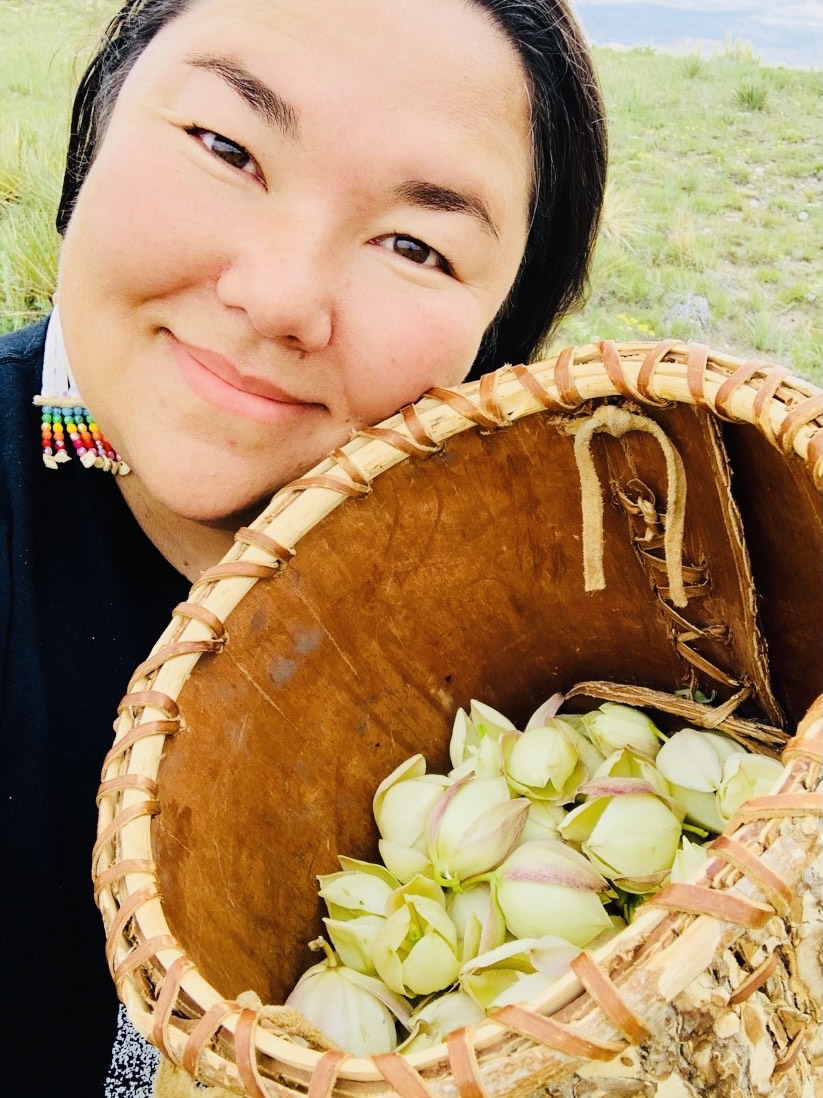 Linda Black Elk is an ethnobotanist and food sovereignty activist specializing in teaching about culturally important plants and their uses as food and medicine. Linda works to build ways of thinking that will promote and protect food sovereignty, traditional plant knowledge, and environmental quality as an extension of the fight against hydraulic fracturing and the fossil fuels industry. Linda and her family have been spearheading a grassroots effort to provide organic, traditional, shelf stable food and traditional Indigenous medicines to elders and others in need. Linda has written for numerous publications, and is the author of “Watoto Unyutapi”, a field guide to edible wild plants of the Dakota people. Linda spends her time foraging, hiking, hunting, and fishing on the prairie with her husband and three sons, who are all members of the Oceti Sakowin. Linda currently serves as the Food Sovereignty Coordinator at United Tribes Technical College in Bismarck, North Dakota.
Linda Black Elk is an ethnobotanist and food sovereignty activist specializing in teaching about culturally important plants and their uses as food and medicine. Linda works to build ways of thinking that will promote and protect food sovereignty, traditional plant knowledge, and environmental quality as an extension of the fight against hydraulic fracturing and the fossil fuels industry. Linda and her family have been spearheading a grassroots effort to provide organic, traditional, shelf stable food and traditional Indigenous medicines to elders and others in need. Linda has written for numerous publications, and is the author of “Watoto Unyutapi”, a field guide to edible wild plants of the Dakota people. Linda spends her time foraging, hiking, hunting, and fishing on the prairie with her husband and three sons, who are all members of the Oceti Sakowin. Linda currently serves as the Food Sovereignty Coordinator at United Tribes Technical College in Bismarck, North Dakota.
Gabriel Allahdua:
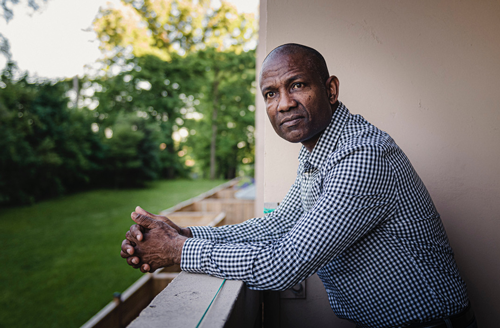 Gabriel Allahdua is a former migrant farm worker. He is now an organizer with the collective Justicia for migrant workers. He is also on the steering committee of the Black Creek Community Farm.
Gabriel Allahdua is a former migrant farm worker. He is now an organizer with the collective Justicia for migrant workers. He is also on the steering committee of the Black Creek Community Farm.
Shannon Chief:
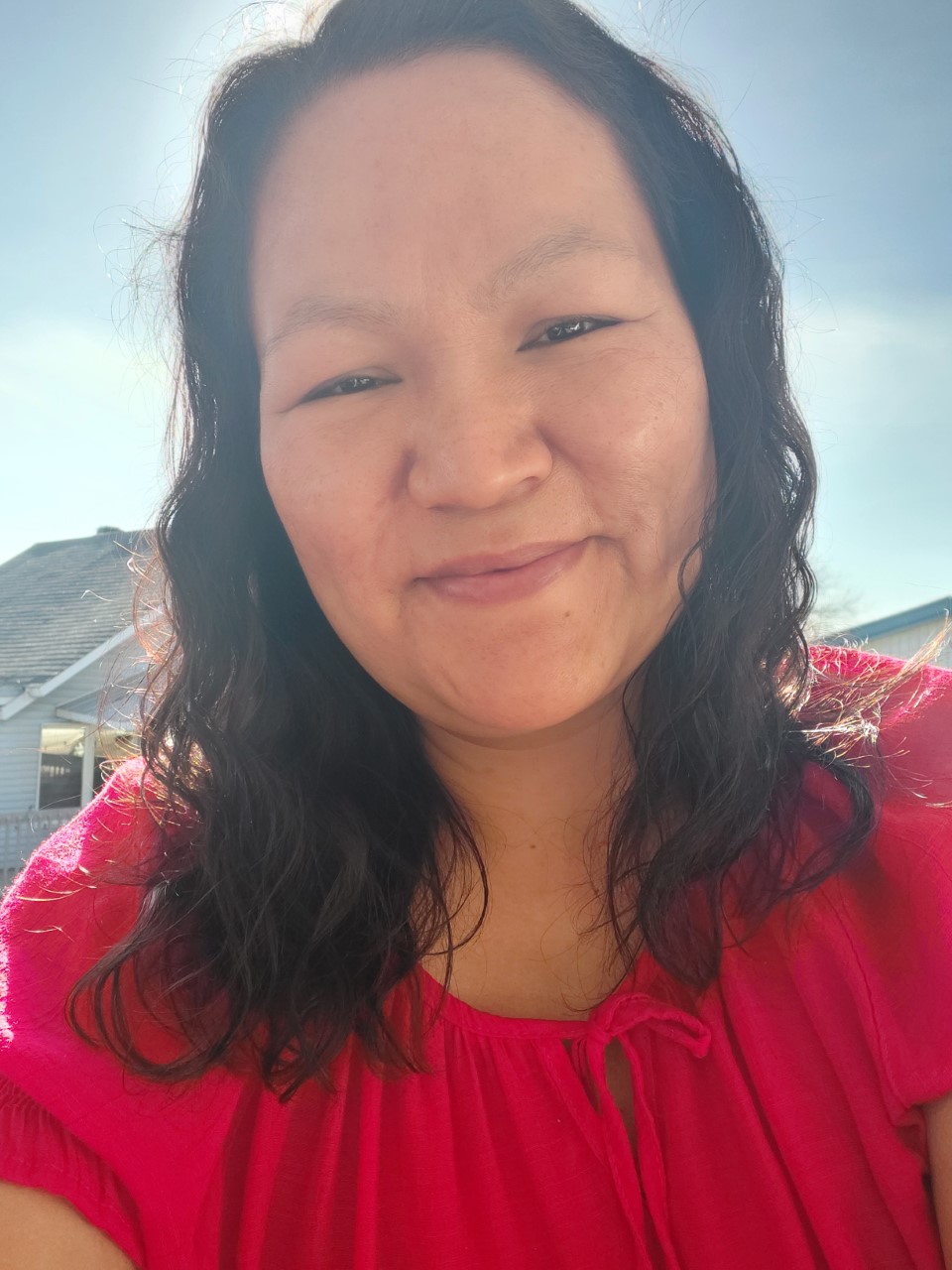 Shannon Chief was born and raised to the Wolf Clan in the Anishnabe-Algonquin Nation. She is a cultural carrier who contributes to the decolonization and restoration of Anishnabe sovereignty, including protection of water, land, animals and language. She advocates on issues arising from climate change which have cruel repercussions in her nation and culture. She has co-developed a Land Based Curriculum to support and strengthen her peoples’ language and hopes to build a Teaching Lodge on the land.
Shannon Chief was born and raised to the Wolf Clan in the Anishnabe-Algonquin Nation. She is a cultural carrier who contributes to the decolonization and restoration of Anishnabe sovereignty, including protection of water, land, animals and language. She advocates on issues arising from climate change which have cruel repercussions in her nation and culture. She has co-developed a Land Based Curriculum to support and strengthen her peoples’ language and hopes to build a Teaching Lodge on the land.
Shannon has contributed her knowledge to social movements like the Ottawa Social Forum 2014, World Social Forums 2017, Quebec Native Women’s Association in the Indigenous Women Against Extractivism’s Written Declaration and she was an Advisor to the Ottawa Powershift Youth Forum in 2019. She is presently on the Advisory Council for International Dam Watch. As a self-employed artist, she creates handmade mukluks, mitts, moccasins and other beaded accessories through her Ojimak Wear & Designs home business.
Stephanie Morningstar:
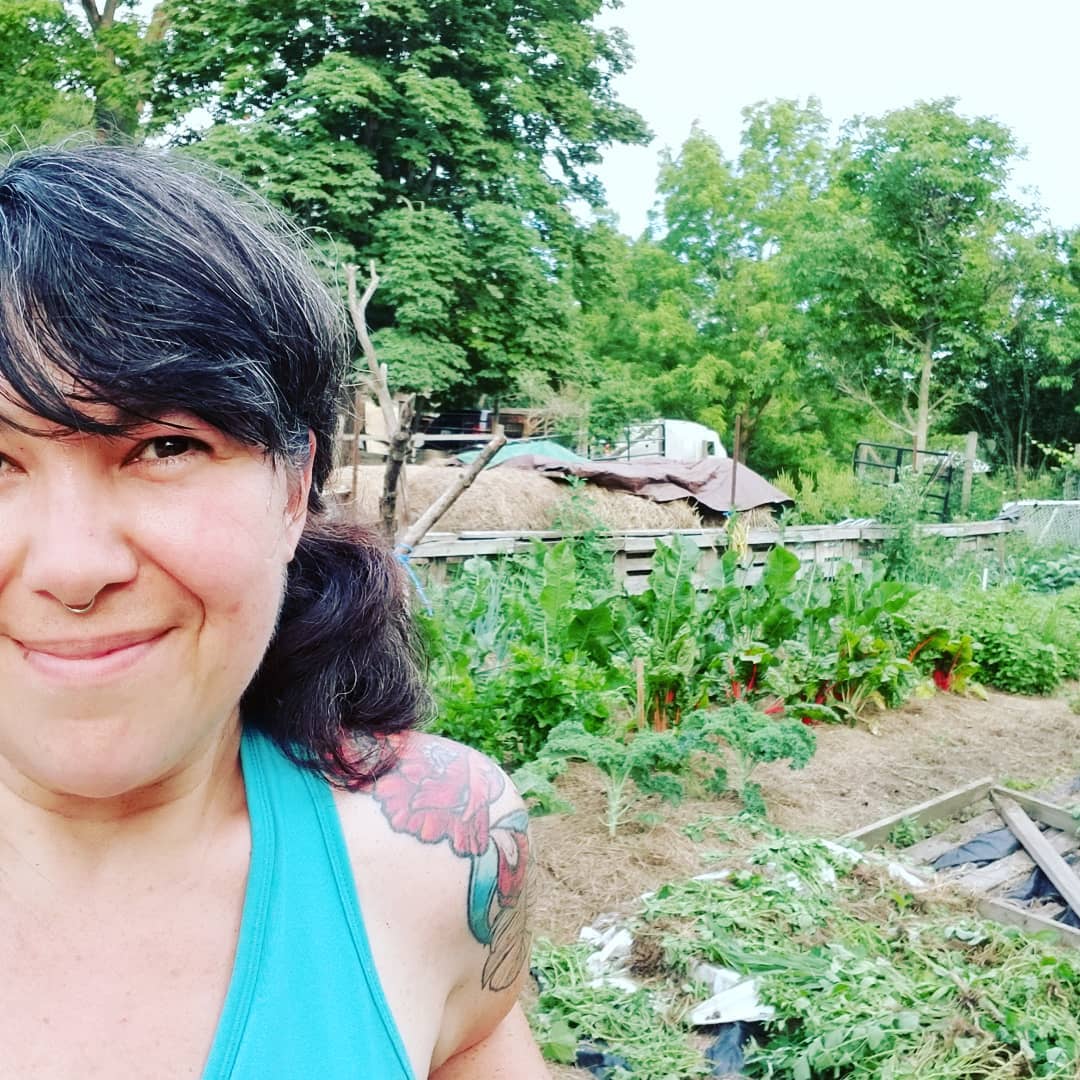 Stephanie is Mohawk on her mother’s side and of mixed European descent on her father’s side. She is an herbalist, soil and seed steward, scholar, student, and Earth Worker dedicated to decolonizing and liberating minds, hearts, and land- one plant, person, ecosystem, and non-human being at a time. Stephanie is the Executive Director of the Northeast Farmers of Color Land Trust, an organization dedicated to advancing land access for BIPOC land stewards of color. Stephanie tends medicines at Sky World Apothecary & Farm and teaches about the wonders of plant medicine at Seed, Soil, + Spirit School.
Stephanie is Mohawk on her mother’s side and of mixed European descent on her father’s side. She is an herbalist, soil and seed steward, scholar, student, and Earth Worker dedicated to decolonizing and liberating minds, hearts, and land- one plant, person, ecosystem, and non-human being at a time. Stephanie is the Executive Director of the Northeast Farmers of Color Land Trust, an organization dedicated to advancing land access for BIPOC land stewards of color. Stephanie tends medicines at Sky World Apothecary & Farm and teaches about the wonders of plant medicine at Seed, Soil, + Spirit School.
Stephanie’s theory of change is rooted in community-driven, self-determined solutions created by BIPOC communities for BIPOC communities. She carries with her over a decade of Indigenous community-driven systems change work in healthcare, legal, herbal, agricultural, land access, and academic research spaces where she cut her teeth on speaking Truth to Power.
Moderator: Tabitha Robin
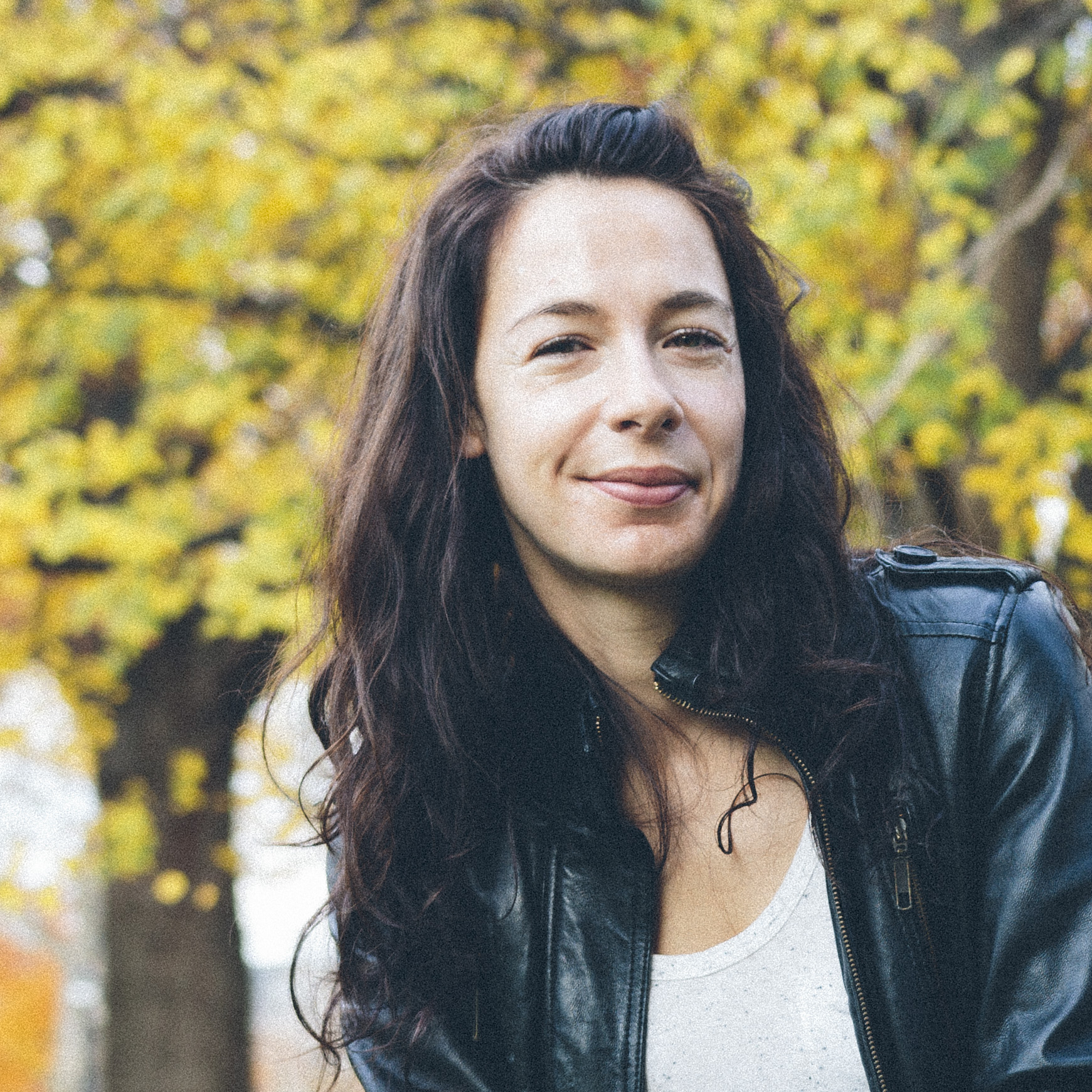 Tabitha Robin is a mixed ancestry Swampy Cree researcher, educator, and writer. She is a PhD Candidate at the University of Manitoba, studying Indigenous Food Sovereignty in the Faculty of Social Work and the Department of Native Studies. She spends much of her time on the land, working with her people, and learning traditional Cree food practices. She has worked on research projects with the National Indigenous Diabetes Association, Four Arrows Regional Health Authority, the Indian and Metis Friendship Centre in Winnipeg and Neechi Commons.
Tabitha Robin is a mixed ancestry Swampy Cree researcher, educator, and writer. She is a PhD Candidate at the University of Manitoba, studying Indigenous Food Sovereignty in the Faculty of Social Work and the Department of Native Studies. She spends much of her time on the land, working with her people, and learning traditional Cree food practices. She has worked on research projects with the National Indigenous Diabetes Association, Four Arrows Regional Health Authority, the Indian and Metis Friendship Centre in Winnipeg and Neechi Commons.